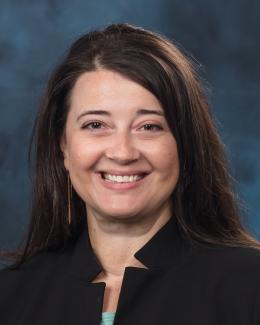Project Details

Increasing our confidence in climate projections for high-latitude regions of the world requires a coordinated set of investigations that target improved process understanding and model representation of important ecosystem-climate feedbacks. The Next-Generation Ecosystem Experiments (NGEE) Arctic seeks to address this challenge by quantifying the physical, chemical, and biological behavior of terrestrial ecosystems in Alaska.
The anticipated approach for NGEE Arctic Phase 4 leverages computational, diagnostic, remote sensing, and data synthesis tools to quantify improvements in prediction of climate–ecosystem feedbacks at the global scale in an Arctic-informed version of the land surface component of the Department of Energy’s (DOE’s) Energy Exascale Earth System Model (E3SM). NGEE Arctic Phase 4 will deliver an unprecedented ability to predict the consequences of interacting Arctic processes for the global climate.
Building on the success of Phases 1–3, the NGEE Arctic team proposes to use computational, diagnostic, remote sensing, and data synthesis tools to test predictive model understanding under novel conditions across the panArctic domain. Phase 4 will be guided by the following overarching science question: How do vegetation change and permafrost thaw interact to affect climate–ecosystem feedbacks across the pan-Arctic? To answer this question, the team will evaluate an Arctic-informed version of the E3SM land model (ELM) against pan-Arctic benchmark data sets and against site-specific to regional-scale observations derived from a range of model evaluation sites that span the pan-Arctic. Crosscuts that encompass the themes of dynamics and disturbance, scaling, and data synthesis and evaluation will allow inference gained from model evaluation at the site level to be extended to regional and pan-Arctic scales. In turn, hypothesis-driven model–experiment (Mod-Ex) subquestions will provide additional insights into model process representation at model evaluation sites and provide avenues for needed model improvements (Figure 2). NGEE Arctic science in Phase 4 will be underlaid by a culture of safety, inclusion, and openly shared data, as well as collaboration with international scientists, other DOE-funded Arctic projects, and sister project NASA ABoVE. By the end of Phase 4, NGEE Arctic will have quantified improvements in prediction of climate–ecosystem feedbacks at the global scale in an Arctic-informed version of ELM (ELM-Arctic), delivering an unprecedented ability to predict the consequences of interacting Arctic processes for the global climate.
For more information about NGEE Arctic, please visit https://ngee-arctic.ornl.gov.
Contact


